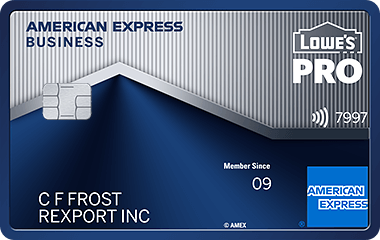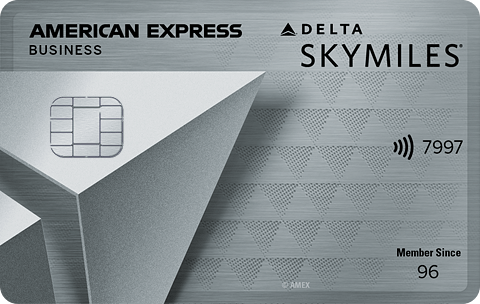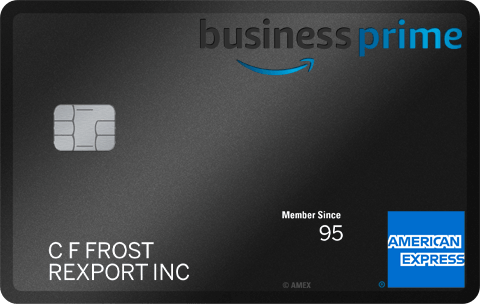- myFICO® Forums
- Types of Credit
- Credit Cards
- Investable Assets to help with Approval Odds?
- Subscribe to RSS Feed
- Mark Topic as New
- Mark Topic as Read
- Float this Topic for Current User
- Bookmark
- Subscribe
- Mute
- Printer Friendly Page
Investable Assets to help with Approval Odds?
Is your credit card giving you the perks you want?
Browse credit cards from a variety of issuers to see if there's a better card for you.
- Mark as New
- Bookmark
- Subscribe
- Mute
- Subscribe to RSS Feed
- Permalink
- Report Inappropriate Content
Investable Assets to help with Approval Odds?
I'm an expat who grew up and currently lives outside of the United States but plans to return in a few years. Previously I had no credit history in the US so I'm currently working on building credit history in the US.
My goal is to get my credit history ready as soon as possible, so that I can get a mortgage with favourable rates and also gain access to travel reward cards such as Venture X. I suppose part of that involves getting higher SL, maybe in the range of 10k, so I'm hoping to see if I can use my assets to help with that.
I do have a little bit of liquid investable assets (stocks and ETFs) that I'm willing to move around in order to help my odds in getting approved. I can move up to 400k of assets, but preferably 150k~200k. At the moment I'm looking at:
- HSBC: They've a program that recognizes credit history from oversea.
- Chase: Previous discussions on the forum seem to indicate their credit card department is completely separated from the wealth management, so assets invested have little or no influence on underwriting.
- Bank of America: It seems that they're a bank that cares about relationships, but not sure how much influence does parking 200k for 3 month in Merrill Edge have.
- Citi: There's Citi Self Invest that counts towards the 200k Citigold requirement, but there's no mention and little to no DP on if having Citigold helps with new-to-credit underwriting.
A bit more about myself:
- 712 TU VantageScore (reported by creditwise), 733 TU VantageScore (reported by Alliant CU)
- May 2022: Applied for Citi Double Cash and Citi Secured, both denied. Applied for Cap1 QS Secured, approved.
- Mar 2023: Applied for Citi Double Cash and denied again. Called recon, was told credit history too short. Applied for Cap1 SavorOne, approved with 1k SL. Cap1 QS graduated to unsecured.
- Always put ~$10 on the card and PIF every month.
I'm planning to apply to something in Q4 2023, since it takes a bit of time to build relationships with banks, I'm seeking advice now on the best path forward. Highly appreciate any DP or insights. I understand 400k is sort of borderline on the ability to influence underwriting criteria, so if you believe it's best not to try this route, please let me know as well. Thanks.
- Mark as New
- Bookmark
- Subscribe
- Mute
- Subscribe to RSS Feed
- Permalink
- Report Inappropriate Content
Re: Investable Assets to help with Approval Odds?
Usually investable assets help you get better rewards on cards in a few programs like BofA or Fidelity, but having those matter in order to get credit requires some kind of relationship with a banker who manages your assets and their ability to influence credit decisions. US Bank seems to give it's bankers the ability to influence credit decisions for their cards, not sure of others.
I will say that most people with good credit/cards in the US have it done it without any investable assets influence. There's no easy way to game the system in a way because it requires time and on time payment history and a building up from starter cards to better ones in most cases.
Do you have any credit history in the US at all or just starting from scratch? Getting denied for too short of a history makes me think it's brand new file and if that's the case then you've started it right, get any cards you can to start building on time payment history. Your score will grow over time (pretty quickly if you don't miss payments) and you will be able to get any card you want within a year or two.








- Mark as New
- Bookmark
- Subscribe
- Mute
- Subscribe to RSS Feed
- Permalink
- Report Inappropriate Content
Re: Investable Assets to help with Approval Odds?
The answer is almost always no, it won't make a difference. Your investment brokerage should really be driven by what gives you the best return of value on your invesments, be it a helpful advisor you like, lower fees, a better interface, or whatever other factors help you grow your investments the most effectively. Don't use them as bargaining chips for something as silly as a credit card.
- Mark as New
- Bookmark
- Subscribe
- Mute
- Subscribe to RSS Feed
- Permalink
- Report Inappropriate Content
Re: Investable Assets to help with Approval Odds?
I never had any relationship with Citigroup before except for 2 credit cards - DC ($12,000) and CC ($11,600).
Then, I put $75,000 into their Citibank Priority checking, got my $1,000 bonus, then put the $76,000 into a 1 year CD where it is now.
Then, I applied for the R+ card. $7,500 limit. So, having $76k with Citibank didn't help me with citi cards as far as I can tell.
Everyday 5% CB:
Chase prime Visa // citi CUSTOM CASH “A” // citi CUSTOM CASH “B” // citi SHOP YOUR WAY (5% gas (in points), lucrative spending offers) // mylowe’s Rewards // Target circle card // primis Perks debit Visa (50c CB per transaction (5% CB or more up to $10 spend))
5% CB rotating:
Chase “OG” freedom Visa // DISCOVER it Cash Back // nusenda CU Platinum Cash Rewards
Everyday 4% CB:
US Bank Smartly (v1.0)
Everyday 3% / 2.2% CB:
AOD FCU Visa Signature (3%, sockdrawered) // upgrade Cash Rewards Elite (2.2%, sockdrawered)
Welcome Offer / credits only:
Chase SAPPHIRE PREFFERED (grabbed my $1,000, sockdrawered, will cancel) // NFCU FLAGSHIP REWARDS (elevated Welcome Offer, annual prime credit, sockdrawered)
Hotel card:
Chase IHG ONE REWARDS PREMIER (elevated Welcome Offer, 1 free night/yr)
On my radar:
Langely FCU Signature Cash Back (5% CB monthly selectable cat) // Safe CU Cash Back+ (Quarterly rotating 5% CB cats plus bonus cats) // upgrade MyFive Cash Rewards (5% CB monthly selectable cat) // US Bank Kroger (and family) World Elite Master Card(s) (5% CB Mobile Wallet)
- Mark as New
- Bookmark
- Subscribe
- Mute
- Subscribe to RSS Feed
- Permalink
- Report Inappropriate Content
Re: Investable Assets to help with Approval Odds?
One thing to consider with BoA:
Your holdings in Merrill Edge do count towards your banking relationship with BofA. I move around monies between my BofA checking, savings and Merrill Edge accounts, as well as my high yield Merrill Preferred Deposit account, and retain Platinum Honors status with BofA even when my BoA checking and savings accounts are below $100,000.
My experience is that BofA values relationship. They took a chance on me with a secured card right out of Chapter 13. I'm sure my history with them helped.
FICO 8 EX 829 EQ 839 TU 844
American Express Blue Cash Preferred 30K I American Express Blue Cash Everyday 30K I American Express Delta Skymiles 13.9K I American Express Schwab Investor Card 5K I Bank of America Customized Cash Rewards Visa 30K | Kinecta MyPerks Rewards MC 35K | Wells Fargo BILT World Elite MC 30K I BMO Harris Cash Back MasterCard 12K | Capital One QS MC 12.5K I NFCU Flagship Rewards Visa 52K I NFCU Amex 28K I Citi Best Buy Visa 15K I Macy’s Amex 25K I Bread Financial American Express 15.5K I AAA Daily Advantage Visa Signature 8.5K I Saks Fifth Avenue World Elite MC 10.8K I Citi Dillard’s Visa 5K I JCPenney Mastercard 10K I Synchrony Premier Mastercard 10K I UCLA Wescom CU Rewards Visa 7K I Pottery Barn Visa 5K I PayPal Cash Back Visa 15K I MyWalgreens Mastercard 10K I TD Bank Double Up Visa 5K I USBank Cash Visa 5K I Gemini Bitcoin Mastercard 15K I
- Mark as New
- Bookmark
- Subscribe
- Mute
- Subscribe to RSS Feed
- Permalink
- Report Inappropriate Content
Re: Investable Assets to help with Approval Odds?
@johnl8003 While you might not be looking at Chase, I'll add that my experience with them is yes, moving over assets appears to have had a substantial positive impact. After funding a Self-Directed account and upgrading to Sapphire Checking, the flood gates seemed to open for CLI's, as can be referenced by my experiences here and subsequently here. I think this helped my case for overall exposure, but might not necessarily help with easing initial approval criteria (such as applying over 5/24).





































- Mark as New
- Bookmark
- Subscribe
- Mute
- Subscribe to RSS Feed
- Permalink
- Report Inappropriate Content
Re: Investable Assets to help with Approval Odds?
Indeed I'm starting from scratch with no credit history before 2022. I'll look into US Bank. Thanks.
- Mark as New
- Bookmark
- Subscribe
- Mute
- Subscribe to RSS Feed
- Permalink
- Report Inappropriate Content
Re: Investable Assets to help with Approval Odds?
@iced wrote:The answer is almost always no, it won't make a difference. Your investment brokerage should really be driven by what gives you the best return of value on your invesments, be it a helpful advisor you like, lower fees, a better interface, or whatever other factors help you grow your investments the most effectively. Don't use them as bargaining chips for something as silly as a credit card.
The reason why I'm planning to move 150k-200k is because all of these bank's brokerage arm fulfill my needs for that portion of my asset with little difference, which is buy and hold, no trading, no margin. For the rest of my assets, I'll leave them with the brokerage that works best for my needs (order execution, margin rates... etc). Besides, I want to stay below the 500k SIPC limit. Either way, it's good to know that it's "almost always no".
- Mark as New
- Bookmark
- Subscribe
- Mute
- Subscribe to RSS Feed
- Permalink
- Report Inappropriate Content
Re: Investable Assets to help with Approval Odds?
Welcome to My FICO Forums, @johnl8003. ![]()
You bring up a topic that is often debated on My FICO and I believe the answer is "it depends." In your case, I think the influence of moving assets would be minor if anything. Money talks, but to really open doors it would probably need to be much higher than your mid six-figures, or at least be accompanied by a similarly large documentable income.
Whether the credit and banking departments talk to each other depends on the financial institution. Bank of America is known to heavily favor applicants for their Premium Rewards cards who have deposit accounts and Preferred Rewards status, for example. But I'm not sure that is enough to out-weigh a lack of credit profile depth. Same with the other major lenders.
I would suggest continuing to build history with your Capital One cards and over time, try to add another bank card. CITI, as you've seen, is known to be a little more picky on their underwriting. Discover is often an easier approval. AMEX might approve a card with a thin profile, especially if you have higher income. (I'm not sure if it helps but they have an online money market where you could park some funds at a decent HYSA rate.) AMEX approvals are often easiest on their cobranded cards (Hilton, Marriott, Delta) followed by their charge cards and then lastly their core cards (BCP, BCE, ED, EDP, CM). If your ex-pat status is due to parent's military/goverment service, you might be eligible for Navy FCU and they have more lenient underwriting with thin profiles.
Your idea about HSBC might be a good path, but I'm not personally familiar.






















Business Cards









Length of Credit > 40 years; Total Credit Limits >$936K
Top Lender TCL - Chase 156.4 - BofA 99.9 - CITI 96.5 - AMEX 95.0 - NFCU 80.0 - SYCH - 65.0
AoOA > 31 years (Jun 1993); AoYA (Oct 2024)
* Hover cursor over cards to see name & CL, or press & hold on mobile app.